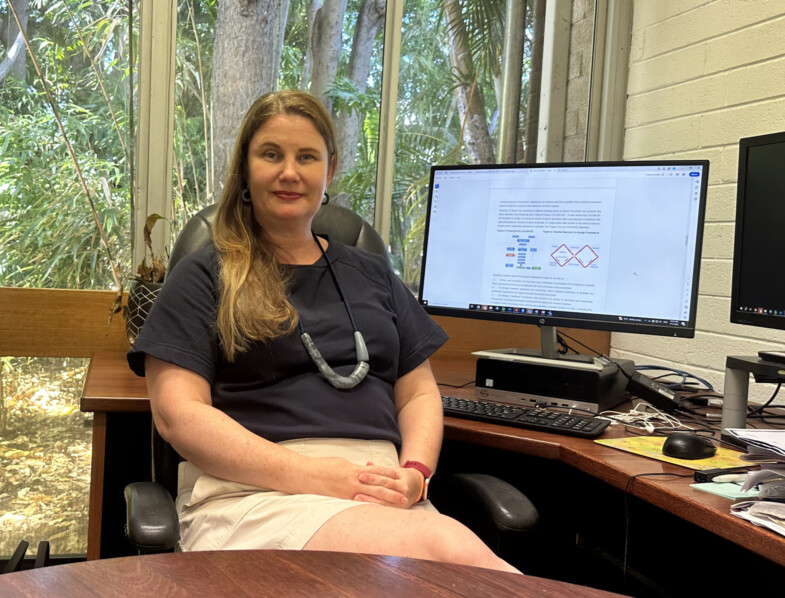Local West Australian researcher, A/Prof Jennifer Stone, has a vision to reduce breast cancer mortality by improving early detection. She has recently been awarded Cancer Council WA’s Research Fellowship, which will help fund her research over the next four years.
Nearly half of the target population do not attend free mammographic screening via BreastScreen
One of the main aims of A/Prof Stone’s research is to improve participation in breast screening.
“Screening saves lives and it’s estimated that eight breast cancer deaths are prevented for every thousand women screening routinely in the targeted age range,” she says.
Despite screening being free for all women aged 40 and over, the participation rates are still quite low.
“Participation rates nationally were around 55 per cent pre COVID and they’re actually worse now post COVID and slowly crawling their way back. A particular concern is also re-screening rates, with less than half of women attending screening for the first time returning when they’re next due”, says A/Prof Stone.
Breast cancer screening is currently a ‘one size fits all’ approach
Along with increasing participation in the breast screening program, there is also an opportunity to make screening more personalised.
A/Prof Stone says that the breast screening program is currently a bit of a “one size fits all” model, that doesn’t incorporate all known risk factors. Unfortunately, this means that around nine cancers per 10,000 women screened goes undetected.
One key area that A/Prof Stone has researched is breast density, which is known to be a strong risk factor for breast cancer. However, up until recently, Breast Screen WA was the only state program that notified women if they have dense breasts.
She adds, “in the absence of clear screening recommendations, for individuals with dense breasts it can be a bit confusing sometimes, particularly for GPs and primary care providers about what to tell their patients about breast density and what (if anything) they should do next”.
Part of this project is to reduce the confusion for people with dense breasts, by collaborating with GPs to provide information on optimal care pathways.
Reducing barriers to screening
A/Prof Stone recognises that there are many reasons why women don’t screen, such as competing demands, access issues, time constraints and sociodemographic factors. However, one of the key areas she believes that we can make an impact is by reducing the barriers to screening for people living in larger bodies , or facing body image issues.
“Individuals living in larger bodies who have a negative experience with mammography are less likely to return. It’s well established that individuals living with obesity are much less likely to participate in screening,” she says.
A/Prof Stone is currently working on a promotional video that will help to improve expectations of the mammogram experience for individuals of all different body shapes and sizes.
She explains, “the idea is that this video will hopefully normalise different body shapes and sizes and by improving expectations then that will hopefully improve the mammogram experience overall.”
By speaking with individuals about their experiences with screening, she found that “the overwhelming consensus during all the interviews and the focus groups, and during the intervention co-design process, was that it has to involve real women, real bodies.”
A/Prof Stone is also working with service delivery staff to implement practical training using real life models to help improve delivery of mammographic screening.
Using AI to predict breast cancer risk
Along with the University of Melbourne’s Centre for Research Excellence (CRE), MyBRISK, A/Prof Stone is also investigating how artificial intelligence could be used to “not only detect breast cancer, but to also predict future breast cancer risk.”
She says, “we could combine individual’s mammogram information, their personalised risk factor information, including their family history, and their genetic markers using of a tool called a polygenic risk score to identify and target those at increased risk, on a primary care level and provide additional screening modalities to find cancers sooner.”
With these new advancements, A/Prof Stone says, “I do believe that we’re on the cusp of change”.
A word to our donors
Having local research in Western Australia that could save lives would not be possible without our community support. A/Prof Stone shares a personal thank you to our supporters who have donated to this research.
“Personally, I’d just like to thank the supporters of Cancer Council WA and their continued support, without which I couldn’t conduct this research.”
A/Prof Stone’s Research Fellowship will commence in 2024.
